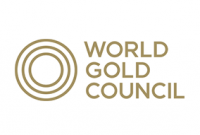The Savvy Investor Global Economic outlook section provides members with the latest white paper research, commentary and thought leadership articles on the forces influencing the world economy and global institutional investors’ investment strategies.
The global economy is made up of 195 countries with the economic activity of each country measured by gross domestic product (GDP), taking place via the exchange of goods and services. This activity is facilitated by currency (money) i.e., a unit of account. The participants within each country who comprise this interdependent economic network include individuals, businesses, and governments...
.
According to the International Monetary Fund, individual country economies are classified as either ‘advanced’ or ‘emerging market’ and ‘developing.’ These classifications are based upon income level per capita, breadth of export diversification and the degree to which a country is interlinked with the global financial system.
The group of seven or G7 are the largest advanced economies of the world as measured by GDP and make up circa 50% of the global economic activity. The current G7 is made up of:
- United States
- United Kingdom
- Germany
- Canada
- Japan
- France
- Italy
Forces that impact the global economy and global GDP can be financial, such as the level of interest rates, inflation, exchange rates and taxation. Other factors can be social such as unemployment levels, migration, demographics, political stability or whether a country or region is at war.
Catalysed by the fall of the Berlin wall in 1989 and the subsequent decline in socialism, the global economy has grown into an increasingly interconnected global marketplace. This growth has been facilitated by international free trade, the promotion of market economies, technological innovation and the advent of the internet.
The Great Financial Crisis (GFC) of 2008 demonstrated the fragility and interdependency of the global market economy. Post-GFC, central banks have been relied upon by financial markets and the broader economy to provide sufficient economic stimulus to maintain economic activity. This has created unintended consequences such as wealth inequality, negative social mood and global geopolitical instability.
As the world economy evolves into the 2020s, established G7 players will attempt to compete with emerging market and developing countries for economic dominance. Through increased automation and rising education standards, it is expected that a knowledge-based economic model will emerge founded upon corporate environmental and social governance (ESG) principles and an internationally accepted carbon accounting standard.












